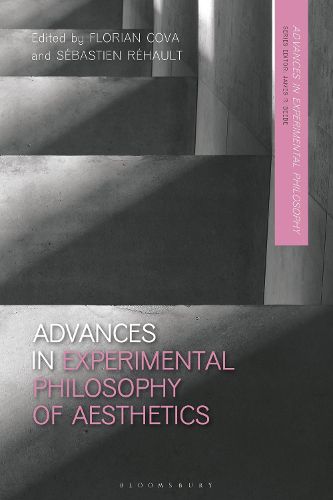Readings Newsletter
Become a Readings Member to make your shopping experience even easier.
Sign in or sign up for free!
You’re not far away from qualifying for FREE standard shipping within Australia
You’ve qualified for FREE standard shipping within Australia
The cart is loading…






Experimental philosophy has blossomed into a variety of philosophical fields including ethics, epistemology, metaphysics and philosophy of language. But there has been very little experimental philosophical research in the domain of philosophical aesthetics. Advances to Experimental Philosophy of Aesthetics introduces this burgeoning research field, presenting it both in its unity and diversity, and determining the nature and methods of an experimental philosophy of aesthetics.
Addressing a wide variety of empirical claims that are of interest to philosophers and psychologists, a team of authors from different disciplines tackle traditional and new problems in aesthetics, including the nature of aesthetic properties and norms, the possibility of aesthetic testimony, the role of emotions and moral judgment in art appreciation, the link between art and language, and the role of intuitions in philosophical aesthetics.
Interacting with other disciplines such as moral psychology and linguistics, it demonstrates how philosophical aesthetics can integrate empirical methods and discover new ways of approaching core problems. Advances to Experimental Philosophy of Aesthetics is an important contribution to understanding aesthetics in the 21st century.
$9.00 standard shipping within Australia
FREE standard shipping within Australia for orders over $100.00
Express & International shipping calculated at checkout
Experimental philosophy has blossomed into a variety of philosophical fields including ethics, epistemology, metaphysics and philosophy of language. But there has been very little experimental philosophical research in the domain of philosophical aesthetics. Advances to Experimental Philosophy of Aesthetics introduces this burgeoning research field, presenting it both in its unity and diversity, and determining the nature and methods of an experimental philosophy of aesthetics.
Addressing a wide variety of empirical claims that are of interest to philosophers and psychologists, a team of authors from different disciplines tackle traditional and new problems in aesthetics, including the nature of aesthetic properties and norms, the possibility of aesthetic testimony, the role of emotions and moral judgment in art appreciation, the link between art and language, and the role of intuitions in philosophical aesthetics.
Interacting with other disciplines such as moral psychology and linguistics, it demonstrates how philosophical aesthetics can integrate empirical methods and discover new ways of approaching core problems. Advances to Experimental Philosophy of Aesthetics is an important contribution to understanding aesthetics in the 21st century.